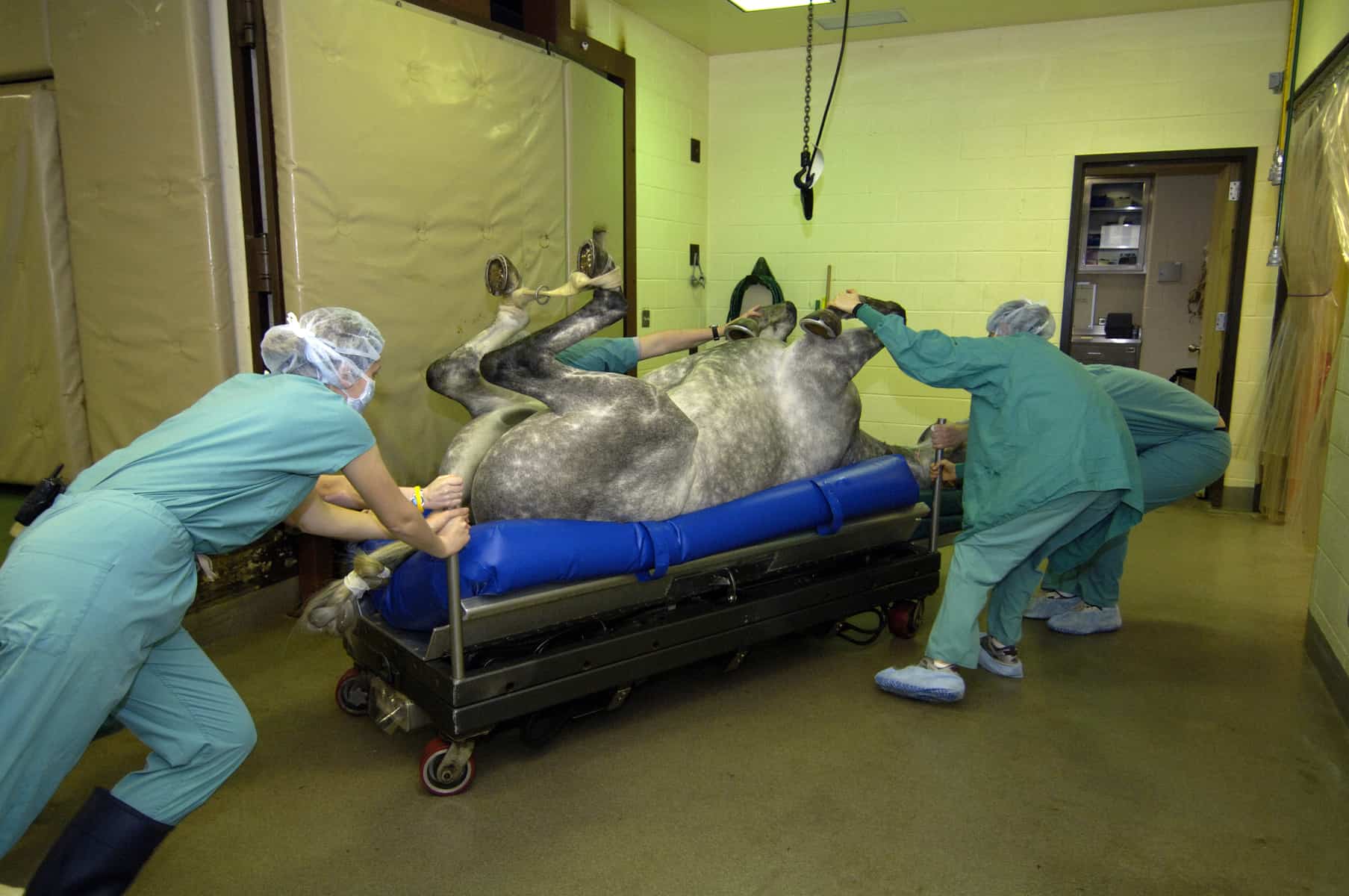Is My Horse Too Old for Colic Surgery?

The decision to take your horse to colic surgery isn’t one to make lightly, whether your animal is a young prospect or an old pasture pet. Surgery inherently carries a number of risks, and making an informed decision about such a costly and invasive procedure requires familiarity with the factors that affect prognosis. But what makes a horse less likely to recover from abdominal surgery? And does age play a role? Using data collected at the University of London’s Royal Veterinary College, three researchers from the University of Pennsylvania School of Veterinary Medicine (Penn Vet), in Kennett Square, tried to answer these questions.
First, the good news: A senior horse (in this case defined as >16 years) is not more likely than its younger, adult counterpart to die after undergoing colic surgery. While a previous Penn Vet study showed that 39% of geriatric horses that undergo surgery are euthanized before recovering from anesthesia, the team on this project determined that if you remove risk factors related to anesthesia from the equation, “age should not negatively impact an owner’s decision to pursue surgery.’’
“The reality is that many older horses that colic are euthanized because of a perceived poor prognosis or financial constraints associated with surgical treatment of an intestinal strangulation,” said Louise Southwood, BVSc, MS, PhD, Dipl. ACVS, ACVECC, associate professor of emergency medicine and critical care at Penn Vet, who worked on the most recent study with Sophie Boorman, BVetMed, and Darko Stefanovski, MS, PhD
Create a free account with TheHorse.com to view this content.
TheHorse.com is home to thousands of free articles about horse health care. In order to access some of our exclusive free content, you must be signed into TheHorse.com.
Start your free account today!
Already have an account?
and continue reading.

Written by:
Lucile Vigouroux
Related Articles
Stay on top of the most recent Horse Health news with












